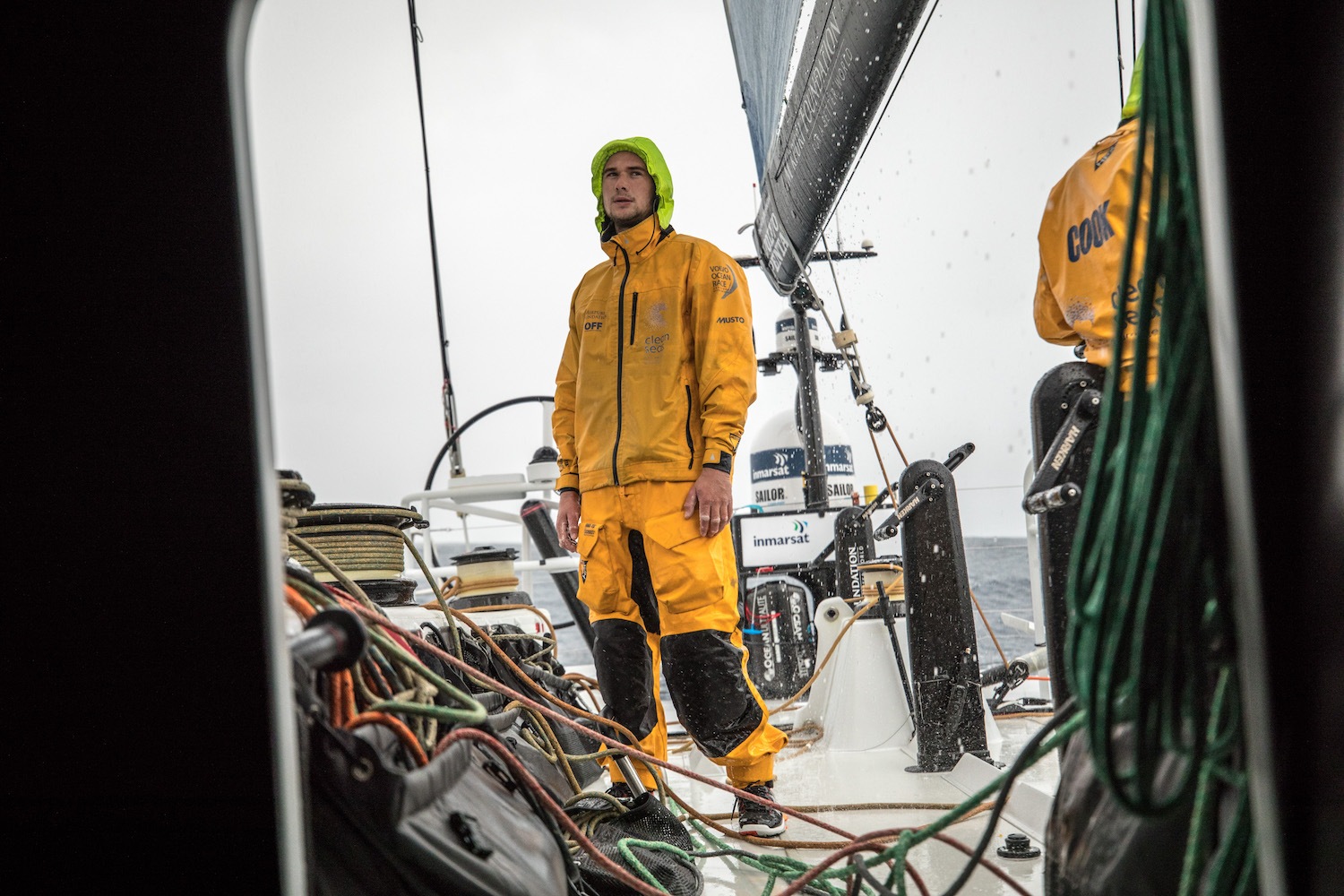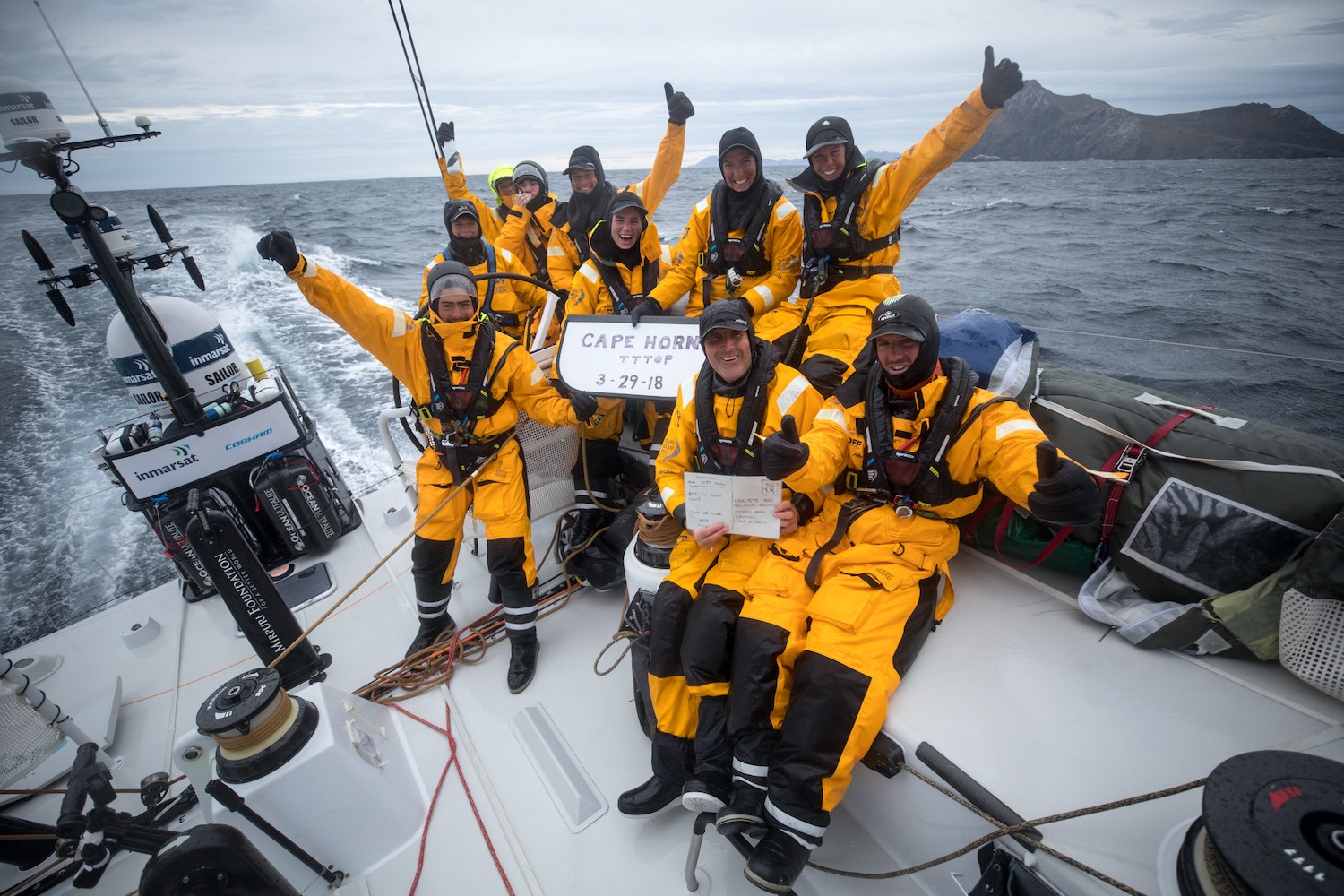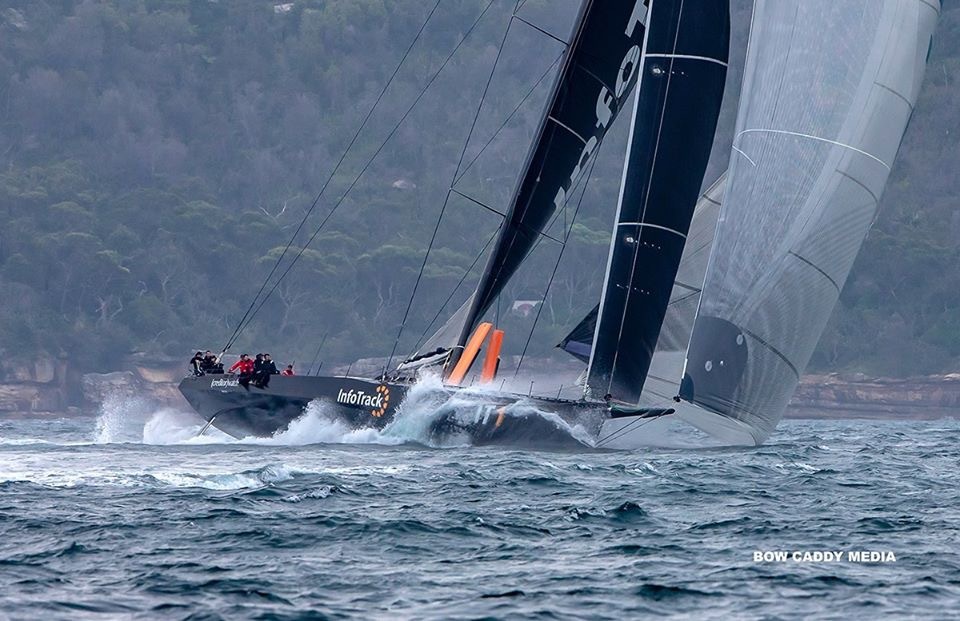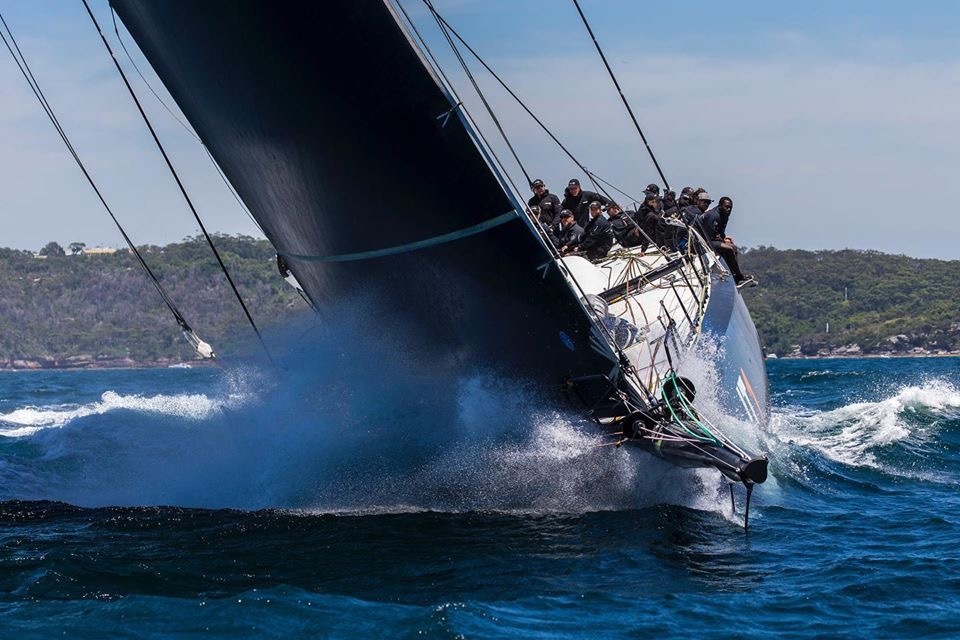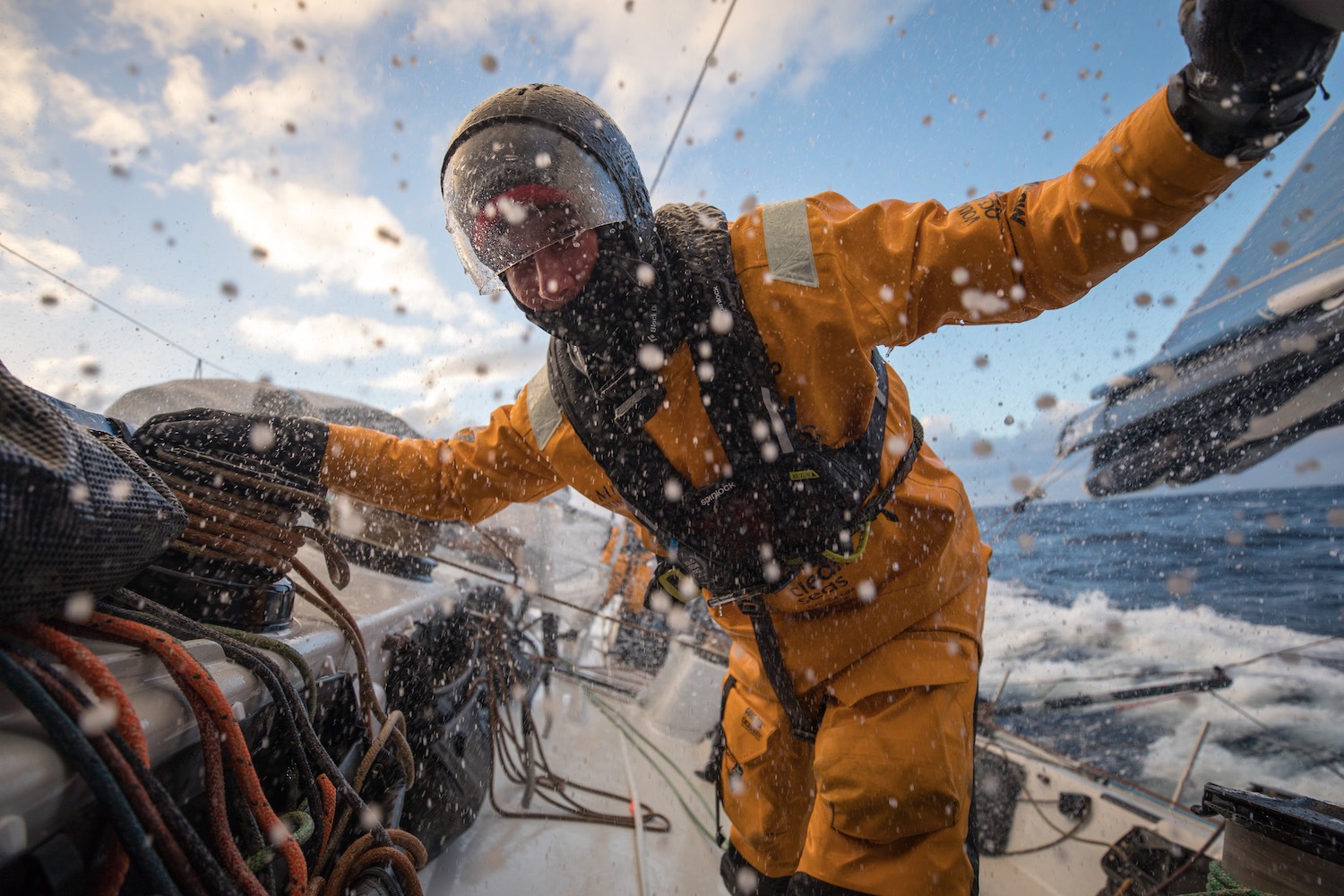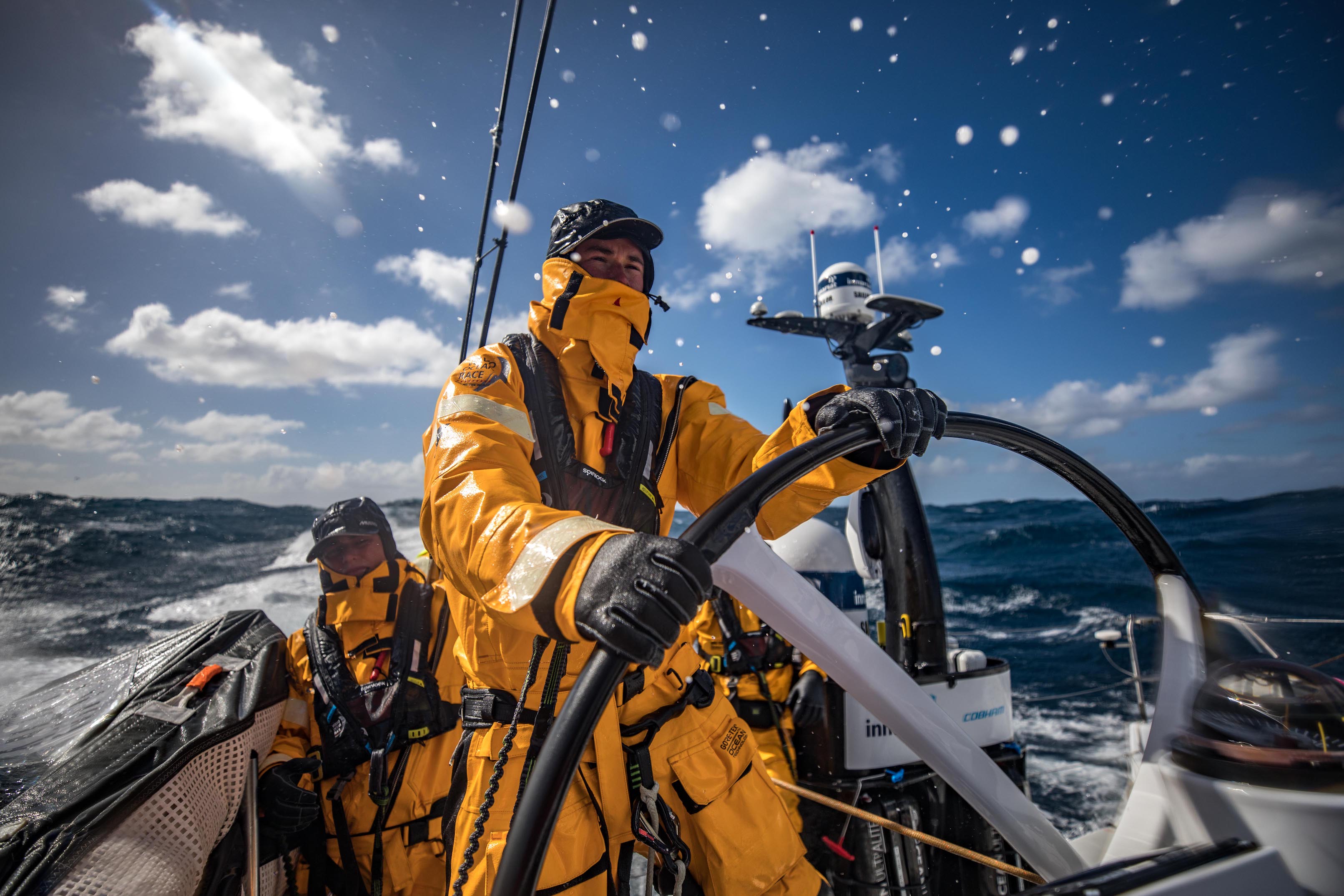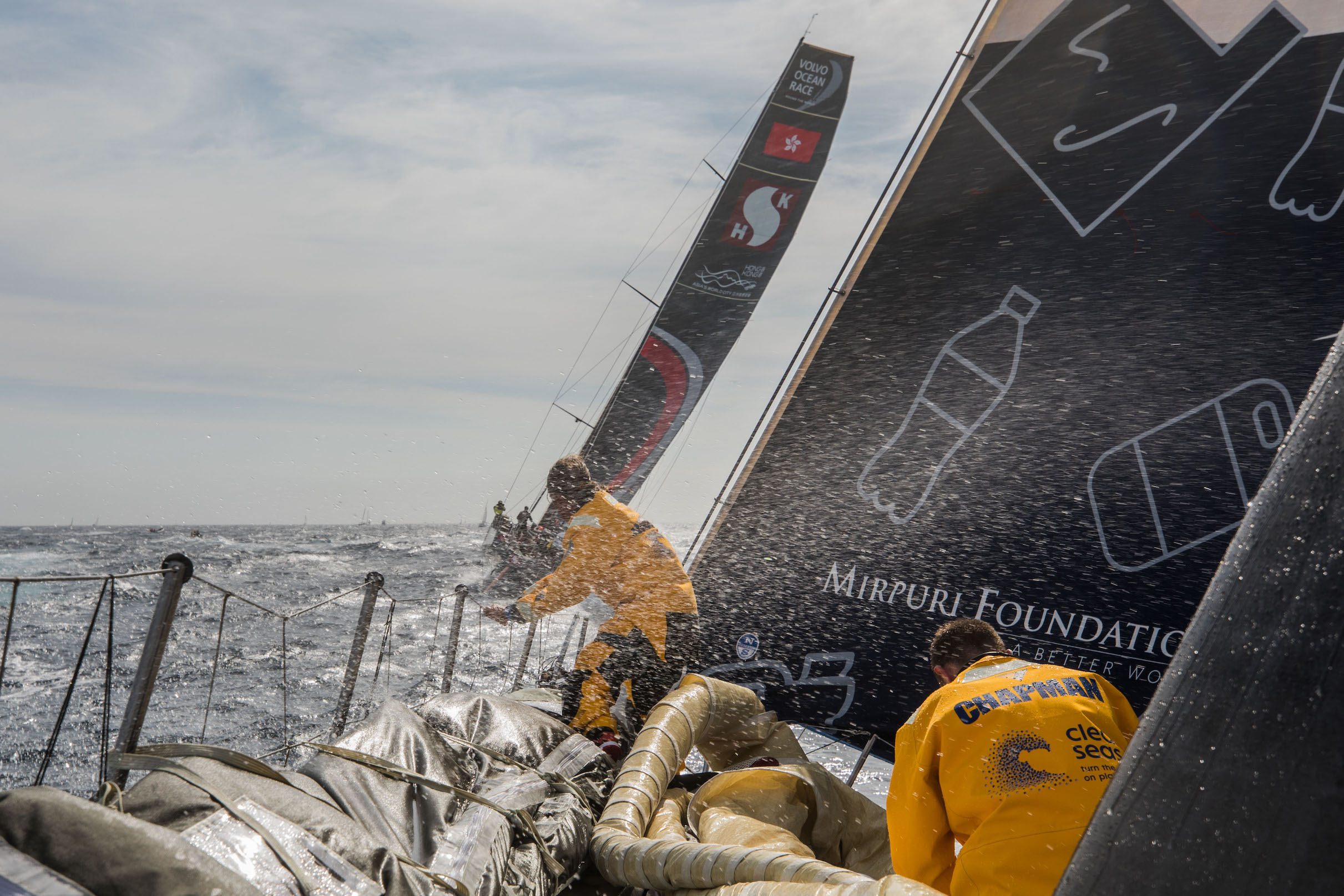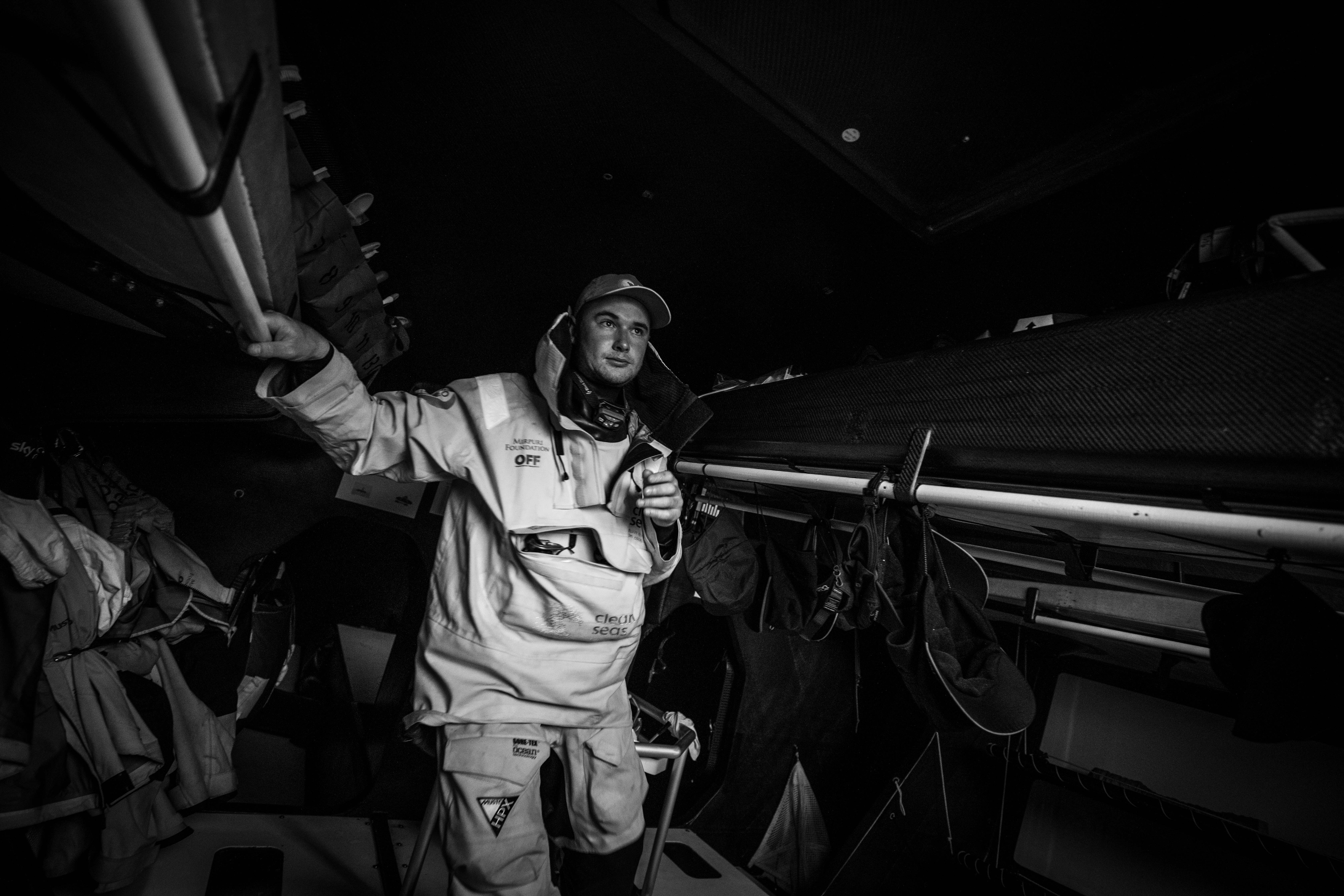Power and passion
Lucas Chapman has sailing in his blood, and has set his sights firmly on the next edition of The Ocean Race.
Written by Jack O'Rourke
12 May 2020
Advertisement
For Lucas Chapman, sailing started at a very young age. His first sailing experiences were on the family cruising yacht, well before he could walk or talk. He comes from considerable sailing pedigree too; his father competed in the 1985–86 Whitbread race and has clearly passed on his passion for sailing to Lucas.
Chapman first started competing at the Belmont 16ft Sailing Club in the Pelican class. From there, he stepped up into the flying eleven class for a few seasons, skippering the state and national titles. He kept stepping up the classes into Cherubs, 29ers and then into 16ft skiffs.
It was while studying at university that he first got into offshore racing. Chapman has competed in seven Rolex Sydney Hobart Yacht Races, most recently in 2018 and 2019 on the supermaxi Infotrack. He also competed in the 2017–18 Volvo Ocean Race on Turn the Tide on Plastic, and shares with Sails his goal to compete in The Ocean Race in 2021–22.
Advertisement
How are you keeping fit during the lockdown period?
Fitness and strength are always a high priority for me. Staying fit also has a huge impact from a mental point of view, so getting the two aligned is super important in all kinds of sport, but especially in offshore racing.
I have been doing a fair bit of running, mountain bike riding and stand-up paddle boarding for cardio and for strength, we have set up a little backyard gym with a bunch of weights and a few battle ropes. It’s great to be able to train with someone when you get the chance. I’ve been lucky my brother has been around; he never stops pushing me.
Have you found an inventive way to continue your training?
I think we have been super lucky with our situation here, being able to get outside and still do most of the normal training in terms of fitness. Being able to get hold of some heavy-duty ship dock lines has seen some interesting exercises set up in the backyard too.
In terms of on-water training, setting up a couple of lasers to do some match races is on the cards.
Are you looking to upskill and if so, what is available?
For sure. There are a number of areas that would make me more valuable as a sailor in the future and using this time to upskill and continue networking is very important.
I am a mechanical engineer and my aim long-term is to use this within the yachting industry to complement my professional sailing. I have been in contact with a few people involved in rig design and have been using this time to upskill my engineering to allow me to work in this field.
I’ve also been spending a bit of time playing around with routing software and some basic meteorology study to try and understand these programs better as they are used on almost every offshore racing boat.
Do you think the tutorials online are helpful to your form of sailing? Any you can recommend?
There are definitely some that are useful. Areas such as basic navigation, radio operators, yacht master courses, offshore medic or safety at sea are all useful for upskilling during this downtime. If you can do any of these modules online, I’m sure it would be a good use of time.
Having a range of tickets on your CV always helps when looking for a job. I also think it’s valuable to spend some time researching different areas, whether it’s rig tuning, sail design or understanding hull shapes and foils better. It’s all valuable knowledge that will help you when you are back on the water.
What has been your favourite sailing moment in competition?
It’s hard for me to look past the last Volvo Ocean Race as the highlight of my career so far. Narrowing it down to one moment is even harder, but there are a few moments that stand out.
Rounding Cape Horn would have to be up there. It was an intense two weeks in the Southern Ocean, so to round the Horn and head north was a pretty nice feeling. Although the next 24 hours were pretty full on with one of the other boats breaking their rig!
In hindsight, another very special moment was the final leg and sailing into the Hague for the finish. It was a satisfying moment to see the end of the project and know we’d just completed a lap of the planet.
What do you expect to be your first competitive sailing outing after restrictions are lifted?
It all depends on how many restrictions there are and how long they are in place for. With international travel looking off the cards for a while, it might be back to the local 16ft sailing club again.
If things don’t lift sooner, it will most probably be the offshore events based in Australia and into the Rolex Sydney Hobart.
My goal is to be a part of the next Ocean Race so for the next year that will be my focus, but like everyone else, we will just have to wait and see.
What is your best advice to youth sailors on how to improve their sailing while the yacht clubs and competitive sailing regattas are closed?
These times are tough on youth sailors and nothing replaces spending time on the water unless you have an America’s Cup simulator in your lounge room!
That said, I still believe there are things you can do while not on the water. Keeping fit, eating healthy and sleeping well are all things that can be easily done and have long-term benefits for your sailing. If you do have access to your boat, it’s the perfect time to maintain it and look for ways to make you faster when you do get back on the water.
I also think a lot can be learned from race replays. Spending some time looking through some past Olympic events is good to see where people have got it right (and wrong) in races and if anything can be learned from the way others sail their boats. Thinking over some of the basic manoeuvres you perform on your boat and finding ways to make them better is helpful too.
Advertisement
Advertisement
Advertisement


